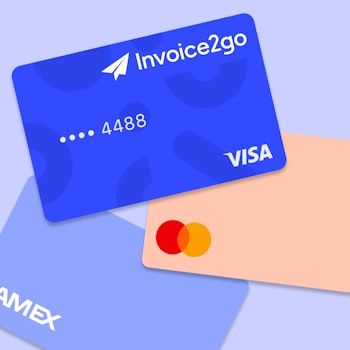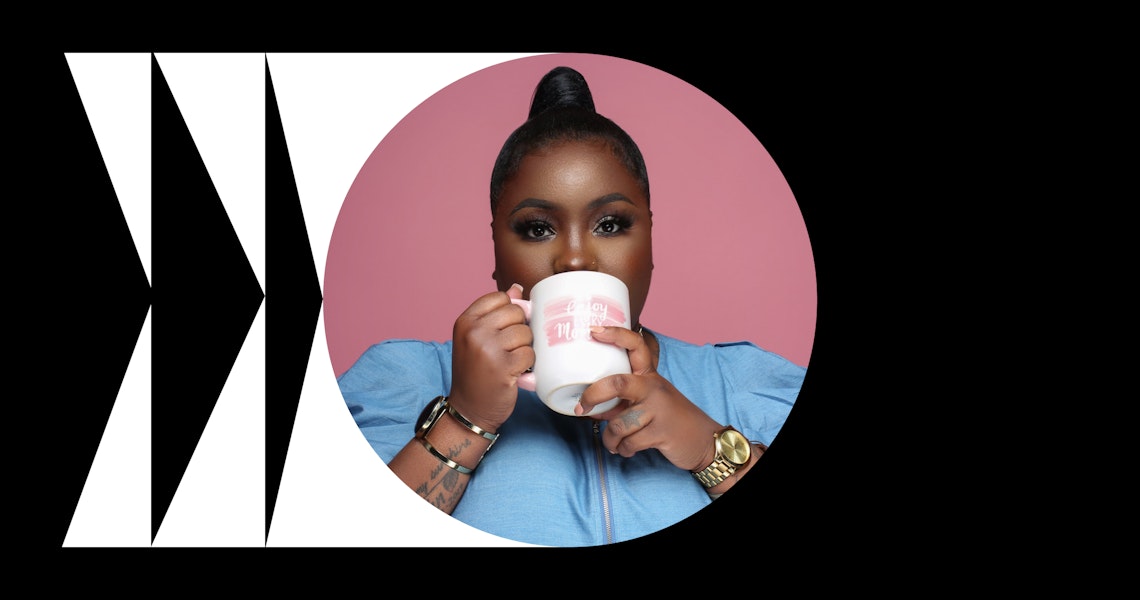
How Dasha Kennedy built The Broke Black Girl to close the gender and racial wealth gap
Financial literacy is crucial — especially if you’re an entrepreneur. The survival of your business can hinge on whether you have a complete understanding of its financial situation.
But because of systemic racism, Black, Indigenous, and people of color don’t have the same access to opportunities to learn the fundamentals of personal finance, such as saving and investing. In a 2018 Financial Industry Regulatory Authority study, Asian and white Americans correctly answered 3.2 out of 6 questions designed to test basic financial literacy, while Latinx and Black Americans correctly answered 2.6 and 2.3, respectively, below the national average. The study didn’t look at Native Americans, but other data suggest that they, too, lag behind Asian and white Americans. Being a woman can magnify these disparities.
As a result, Black women entrepreneurs in particular might be more likely to lack the financial knowledge needed to make informed decisions that enable their businesses to thrive. But 34-year-old entrepreneur Dasha Kennedy is on a mission to flip the script. As the founder and CEO of financial advocacy group The Broke Black Girl, she seeks to empower women of color, especially Black women, with culturally relevant financial education to narrow the gender and racial wealth gap.
The need for culturally relevant financial education and the need for Black women to start their own businesses “go hand in hand,” says Kennedy, who lives in Atlanta, GA. Culturally relevant financial literacy accounts for the systemic barriers that make it necessary for Black women to create additional sources of income, and how entrepreneurship can help them do so.
“As Black women, we exist at the intersection of both disparities, of being not only a Black person, but then a Black woman,” Kennedy says. “Our experience is very unique.”
Indeed, experts have traced the gender financial literacy gap to women having less education and financial experience than men, per Investopedia. Similar factors seem to underlie the racial financial literacy gap, since BIPOC can have less access to education and wealth, and higher unemployment, than their white counterparts. Slavery and its wide-ranging ripple effects — including redlining and Jim Crow segregation — have prevented generations of Black Americans from building wealth, restricting their access to family and community members who can teach them how to manage and grow their money.
This racial financial literacy gap can contribute to inequities that further widen the racial wealth gap, or the differences in wealth between white and BIPOC households, Investopedia explained. According to the Federal Reserve, the average white family has eight times the wealth of the average Black family and five times that of the average Latinx family.
It doesn’t help that mainstream personal finance experts tend to offer cookiecutter advice that neglects to account for these systemic barriers. “The advice that may work for someone else may not work for us [Black women],” Kennedy tells Invoice2go, a Bill.com company.
Finding her financial footing — and helping other Black women do the same
A large part of what makes Kennedy’s e-books, workshops, and other resources resonate with The Broke Black Girl (TBBG) community — which has 255,000 members on Facebook and Instagram – is her firsthand understanding of the financial literacy challenges they face.
Kennedy grew up in St. Louis, MO, in a household where no one talked about money. Since her parents had her at a young age, they were still figuring out their finances themselves. Plus, they were too preoccupied with surviving day-to-day to teach her what they’d learned.
She decided against college in favor of full-time work that would allow her to earn money. At her mother’s suggestion, she took a job as a mailroom attendant at the financial company where her mother worked, so she could at least get health insurance, higher pay, and other benefits.
The then-19-year-old’s job often involved working alongside accountants whose conversations, peppered with unfamiliar finance terms, intrigued her. At the time, she knew nothing about budgeting, retirement, or the importance of a financial plan, period.
At 24, Kennedy delved deeper into finance as a counselor for families who’d defaulted on their home loans. Not long after, she went through a divorce that left her with over $20,000 in debt, with two children to support.
But the financial knowledge she’d gained on the job didn’t apply to her situation. Likewise, the advice she found online, and received from financial advisors and her own employers, failed to acknowledge her experience as a Black woman — or worse, shamed her for it.
Kennedy recalls the time a financial advisor reprimanded her for spending more than the American average on food for her family. She felt so ashamed, she couldn’t bring herself to explain that she neither owned a car nor lived near a grocery store, leaving her no choice but to buy food from a local convenience store for three times the price.
“That happens a lot because I think that traditional personal finance advice has already decided what the standard is,” Kennedy says: straight white men, whose experiences with money, generally speaking, sharply contrast with those of young Black women.
For instance, the personal finance space typically views debt as “bad” and urges those in debt to live on a bare bones budget to pay it off, stat. But it’s easy to demonize debt when you can afford to live without it. Given the impact of the wealth and income gaps on Black women, relying on credit may in some cases be the only way they can cover their day-to-day expenses.
What’s more, a bare bones lifestyle can take a heavy psychological and emotional toll on Black women who might already be struggling to make ends meet. “Sometimes, there’s just absolutely nothing left to cut,” Kennedy says. “If a person is acting in survival mode, and you strip them of everything, the first time they hit a bump in the road, they’re going to want to give up.”
Traditional personal finance glosses over these and other experiences people with marginalized backgrounds have with money, Kennedy says. So in November 2017, she started The Broke Black Girl, a Facebook group where she could share the personal finance tips that worked for her – and crucially, where she felt safe and validated in her experience with money. “I wanted financial advice that made sense for me as a person, as an individual,” she explains.
Growing her business by putting the “personal” back in “personal finance”
Kennedy balanced her 9-to-5 with sharing her personal finance journey and the tips she found useful along the way with the TBBG Facebook community. After her divorce left her saddled with debt, she opened up to them about the lack of conversations about money in her marriage and the importance of staying involved in her personal finances regardless of her relationship status, especially as a Black woman. She also walked them through her nontraditional approach of paying off her debt on a monthly basis, freeing up her income for other expenses. Taking it slow meant she paid more in interest, but it was worth the psychological relief. “I went through something huge,” Kennedy says. “The last thing I needed was to eat noodles every day.”
In its first several months, TBBG’s membership ballooned — as did demand for Kennedy’s services. Although she initially gave away resources for free, people started hiring her to work with them one-on-one, while companies and organizations booked her to teach their employees and members. Eventually, she needed to turn down opportunities because she still had a full-time job. “I realized I was losing money by going to work,” Kennedy says.
At the same time, her work as a default counselor felt at odds with her work with TBBG. Rather than delivering digestible advice that saw each customer as a unique human being, she had to counsel all of them using the same hard-to-understand script. “I was leaving work crying,” she recalls. In August 2018, she quit her 9-to-5 to teach personal finance, her way, through TBBG.
Kennedy’s emphasis on the “personal” in “personal finance” is what’s allowed her to grow her business. She uses storytelling – a mix of advice and her own, relatable experiences – to attract people seeking easy-to-digest financial content, “which also happens to be the exact people I want to work with,” she says. What’s more, she directly asks TBBG community members about their needs through focus groups, as well as polls and Q&As on social media, so she can create and promote products and services that solve the problems they actually face. Her goal is to create a welcoming space where there’s no such thing as a stupid question.
Kennedy also takes a “momentum over math” approach, harnessing the transformative power of small wins as motivation. While traditional personal finance so often overwhelms audiences with information on investing, salary negotiation, and a laundry list of other things they should be doing, she focuses on practical advice that can provide relief right now.
In a recent tweet posted to the TBBG Instagram account, for example, she suggests adding $70 to a savings account, with the goal of creating a $1,000 emergency fund by the end of the year. “If $70 is too much to take at one time, split it in half; $35 today and another $35 in two weeks,” the caption says. Another IG post lists “Things Worth Budgeting For That Are Priceless,” like skincare products and “just because” gifts, that make sticking to a budget more sustainable.
And while personal finance tends to highlight flashy topics like maxing out a 401k or buying a house, Kennedy homes in on the basics — tips she or her mother would’ve needed when they just started learning about personal finance. She talks to TBBG community members about not only setting financial goals and budgeting, but also fully assessing their finances, including their earnings and expenses. This way, they can move forward with investing and other means of building wealth with the confidence that they won’t need that money for immediate living expenses, like rent, transportation, or medication.
Figuring out her finances and making a profit
The insights Kennedy learned and shared on TBBG also enabled her business to flourish. Early on, she didn’t see any profits and managed to only break even. But as her financial literacy grew, so did her understanding of her financial needs as an entrepreneur, which differed from her financial needs as an employee with a steady paycheck. She realized that she needed $2,500 a month to cover her expenses at the time, meaning she had to earn more than $2,500 a month to make a profit – information she used to more strategically price her products and services.
Kennedy believes that herein lies the power of financial literacy for Black entrepreneurs. “I think having access to financial literacy, adequate financial literacy, will help Black entrepreneurs scale their businesses and improve their quality of life,” she says.
For entrepreneurs, especially Black entrepreneurs, who want to improve their financial literacy, she suggests being honest with yourself first and foremost. It’s ok if you’re an entrepreneur and still don’t know what to do with your money. Seek safe spaces like TBBG to ask questions so you can understand your financial needs and access free resources to help you meet them. And if entrepreneurship just isn’t working out, there’s nothing wrong with going back to work.
Kennedy also reassures Black entrepreneurs that credit isn’t as “bad” as traditional personal finance makes it out to be. “For young Black entrepreneurs, debt is so important for us because we, in many cases, lack access to capital,” she says. Although Black Americans account for over 13% of the U.S. population, according to Crunchbase, Black startup founders secured only 1.2% of the $147 billion in venture capital invested in American startups during the first half of 2021. And because of the racial wealth gap, it can be harder for friends and family to kick in capital, too. “We can leverage credit, or ‘good debt,’ to build our businesses,” Kennedy says.
A collective effort
The biggest lesson Kennedy’s learned as an entrepreneur? A willingness to delegate. Initially, she felt compelled to take on accounting, admin, and everything that went into running TBBG, worried about what would happen if she turned those responsibilities over to others. But she became so overextended, she questioned whether she could continue with TBBG. It was then that she asked for help. TBBG had three employees when Invoice2go spoke with Kennedy.
She realized that if she tried to do everything, “some part of the business was going to suffer because I’m not an expert at everything,” she says. “I think being able to recognize that allowed me to show up as best as possible to serve my community.”
When she encounters the inevitable challenges of running a business, moments like when TBBG’s Facebook group came together to help a new member — a young woman recently released from prison — keep her motivated. Not only did the woman show vulnerability in opening up about her experience and her lack of personal finance knowledge, but the TBBG community was willing to meet her where she was. They helped her find a job, secure an apartment, and buy a car. They shared resources, made referrals, and even donated their own money. “I knew at that moment how important the work I was doing was,” Kennedy says.
While Kennedy might’ve started TBBG, she ultimately sees it as a collective effort. “If there’s a problem that one of us is having, then it’s a problem that we’re all having,” she says. “It takes a community approach to solving it. I think that is the basis of The Broke Black Girl Community.”
Related Articles
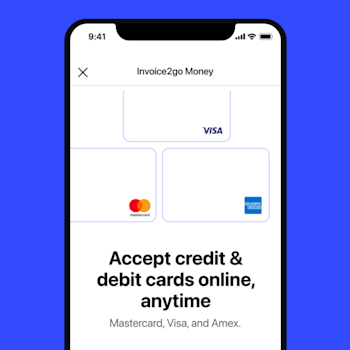
How to accept credit card payments on Invoice2go in 3 simple steps
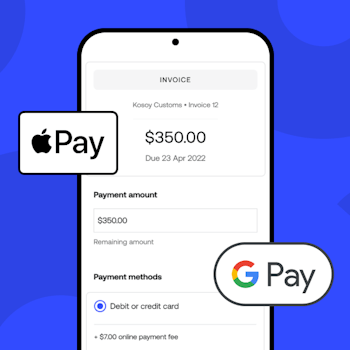
Accept payments online via Apple Pay and Google Pay
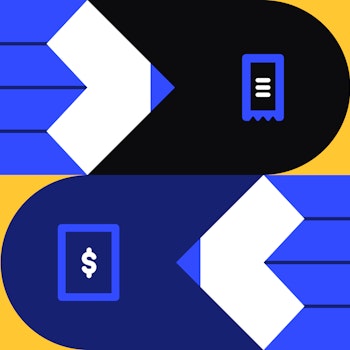
Must-not-miss write-offs as you wrap up 2022 year-end finances
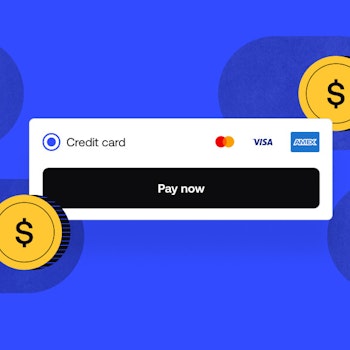
5 ways accepting credit and debit card payments helps your business stay resilient

4 easy ways to increase cash flow today

What is Small Business Saturday and why is it important?
The features and surprising benefits of a well-designed packing slip
